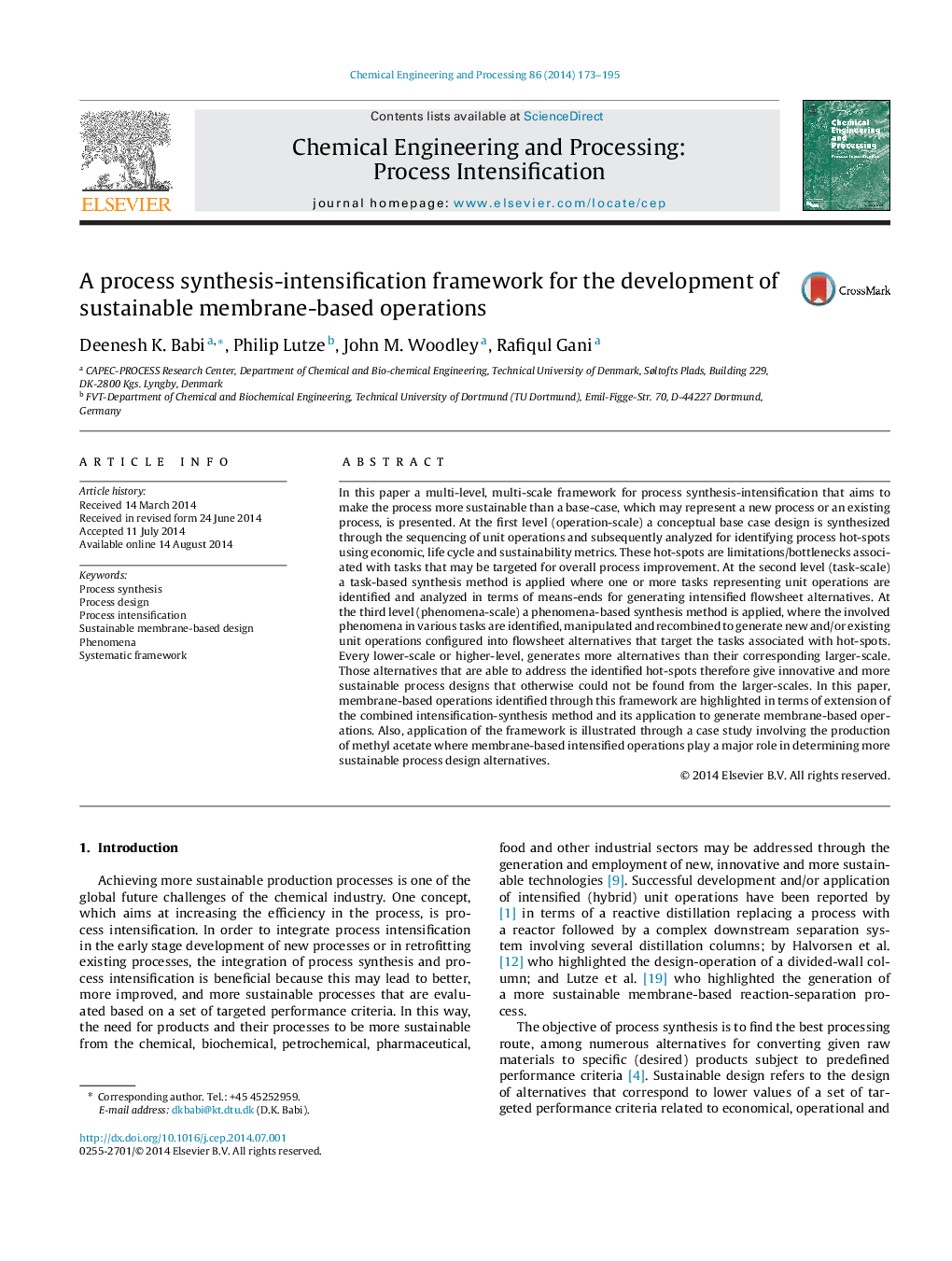| Article ID | Journal | Published Year | Pages | File Type |
|---|---|---|---|---|
| 688156 | Chemical Engineering and Processing: Process Intensification | 2014 | 23 Pages |
•A systematic framework for process synthesis-intensification has been extended.•Economics, sustainability and life cycle assessment used to identify process hot-spots.•Multi-scale synthesis: unit operations, task and phenomena.•The framework is applied to one industrially relevant synthesis problem.•Innovative sustainable intensified membranes-based design.
In this paper a multi-level, multi-scale framework for process synthesis-intensification that aims to make the process more sustainable than a base-case, which may represent a new process or an existing process, is presented. At the first level (operation-scale) a conceptual base case design is synthesized through the sequencing of unit operations and subsequently analyzed for identifying process hot-spots using economic, life cycle and sustainability metrics. These hot-spots are limitations/bottlenecks associated with tasks that may be targeted for overall process improvement. At the second level (task-scale) a task-based synthesis method is applied where one or more tasks representing unit operations are identified and analyzed in terms of means-ends for generating intensified flowsheet alternatives. At the third level (phenomena-scale) a phenomena-based synthesis method is applied, where the involved phenomena in various tasks are identified, manipulated and recombined to generate new and/or existing unit operations configured into flowsheet alternatives that target the tasks associated with hot-spots. Every lower-scale or higher-level, generates more alternatives than their corresponding larger-scale. Those alternatives that are able to address the identified hot-spots therefore give innovative and more sustainable process designs that otherwise could not be found from the larger-scales. In this paper, membrane-based operations identified through this framework are highlighted in terms of extension of the combined intensification-synthesis method and its application to generate membrane-based operations. Also, application of the framework is illustrated through a case study involving the production of methyl acetate where membrane-based intensified operations play a major role in determining more sustainable process design alternatives.
